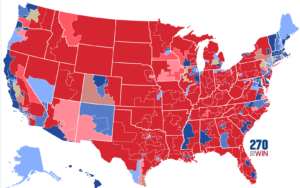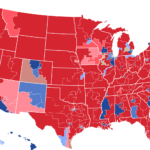As an American society, we are coming to embrace representation on a widespread level. While many of us have long held diversity to be a good value, we’re recognizing it’s not enough to simply have good feelings about it personally. We have to encourage it. This spreads to all areas of American life and unsurprisingly, that includes the medical field.
Diversity is an increasing need in hospitals, medical research facilities, and remote healthcare. Let’s get into why and how we might be able to encourage it there. But first, how do we know there’s a diversity problem in the field? Why is this an issue?
Facts
The reason diversity in healthcare is particularly important right now has to do with the sample size, so to speak. Put bluntly, there is a diverse population needing medical treatment in the United States. With immigrants from all over and a melting pot history, we have 350 languages spoken in this country. Due to this, the call for diversity is higher than ever, and the time to be culturally competent is now. Professionals who understand the languages and cultures of our diverse population are not only good for efficiency but can also make patients feel more comfortable.
Additionally, there is currently a nursing shortage in the United States. The barriers to entry with education costs and social conditioning — which often pushes minorities out of particular job markets — need to be dissolved to help fix this crisis. There is a demand for a lot of help and not enough hands that are experienced enough to be that help. Diverse hands helping would in turn benefit the diverse population that needs medical care.
The Importance of Diversity
Within the world of American healthcare, there’s a lot of prejudice and stereotyping. With racial tensions being high and the political spectrum in a pretty polarized state, the United States feels very divisive. Many minorities feel underrepresented in politics and are threatened by prejudiced attitudes in this country. Representation is necessary to combat anti-diversity ideas.
The thing about prejudice is that it’s bred by ignorance and inexperience. It’s harder for humans to be prejudiced when they interact with people different than them on a more regular basis. Diversity, by default, minimizes prejudice. It normalizes differences.
How This Can Be Accomplished
Normalizing discussions of these things and not shying away from diversity and tense conversations is important. Causing people to think and therefore care about diversity is step one. People in power need to be engaged and challenged on these issues as well. If you have any place of authority or hiring power in your position, think about ways you can authentically recruit and encourage a more diverse cast of employees.
It’s important to also encourage diversity and empower women and minorities in this industry.
When negative stereotyping and problematic attitudes affect someone, it’s everyone’s job to say something. That goes for personal relationships as well as medical policies that display intolerance. Wherever you have power to do something or the opportunity to say something, it’s vital that you do.
How do you encourage diversity in your role? Do you think the healthcare industry will become more diverse in the future? Let us know in the comments below.
Main Photo:













